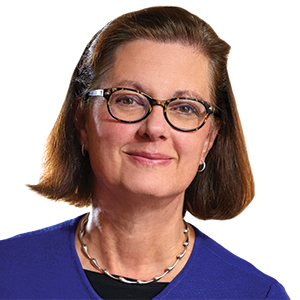Throughout my life, I have been a travel enthusiast. My seventh-grade social studies teacher required our class to create an around-the-globe notebook of world landmarks. It was this simple, yet powerful, middle school exercise that sparked my wanderlust. As an adult, I was fortunate to enjoy three years living abroad in Australia, where I worked first as a development officer and later as an organizer of a regional community foundation.
As I pursued my career in philanthropy, social entrepreneurship and ecosystem building, travel took on a whole new meaning. I observed how entrepreneurs operate in their unique commercial environments and what conditions contribute to a supportive and networked community.
In 2019, I went on a study tour to the Amazon River basin in Peru, where we visited the Belén market in Iquitos and small villages along the rivers. In a blog about this trip published later that year, I wrote, “All along the rivers we met enterprising people selling their handiwork. Children on summer holiday were often by their parents’ side watching the industry of their elders selling their handmade creations and products to travelers navigating the river or to shoppers in the city market.”
The pandemic temporarily put the kibosh on my travel plans to Morocco, Spain and other enticing places, but it could not squash my passion for travel or my desire to learn how entrepreneurs of all types operate in their home cultures.
Travel experiences sharpen the senses — curious travelers often recall seemingly ordinary encounters in vivid detail and learn unexpected lessons along the way that continue to inspire long after the traveler has returned home from their adventures. For entrepreneurs, a break from the daily grind can shed fresh light on vexing challenges and open the mind to new ways of learning and problem solving.
They may spot emerging trends or make a connection that helps a startup advance. Lateral thinking skills are elevated so entrepreneurs are inspired to think creatively and imagine what unusual adaptations might be possible in their own businesses.
Often, entrepreneurial wanderers are placing themselves in VUCA situations — volatile, uncertain, complex and ambiguous environments that challenge their skills and, at times, cause them to feel off balance, vulnerable and out of their comfort zone. Navigation of wayfinding, diverse cultural norms and unfamiliar languages contributes to intense learning experiences, not just about what they see, but also how they see it, interpret it, absorb it and apply it. The traveler becomes more empowered through heightened awareness, preparedness, evolution and anticipation. Emotional intelligence grows and evolves in positive ways.
Ultimately, travel is the quintessential lifelong learning experience. It allows the traveler to examine their ideas and perspectives through different lenses and frameworks. It builds grit, engenders courage and ignites the imagination. The entrepreneurial traveler returns home to their ventures and their communities feeling more alive, energized and inspired by tantalizing possibilities.
My own travels have enhanced my journey as a social entrepreneur, and even a global pandemic cannot dissuade me from such an affirming growth opportunity. ●
Deborah D. Hoover is CEO of Entrepreneurship Education Consortium

